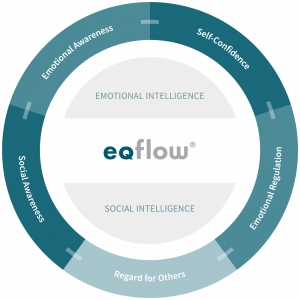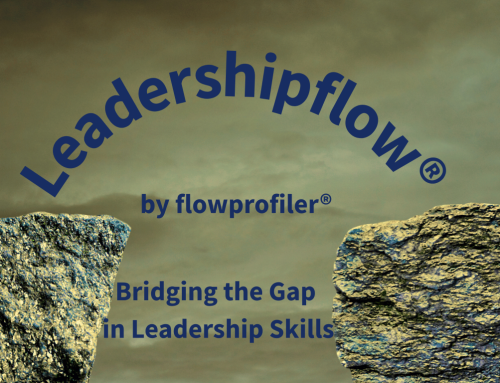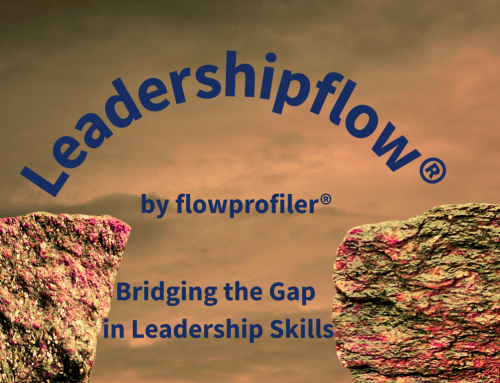 Emotional intelligence (EI) refers to the ability to recognise, understand, and manage one’s own emotions, as well as to perceive and influence the emotions of others. Although the concept of emotional intelligence has gained popularity in recent years, its history dates back to early 20th-century research on social intelligence. In this blog, we’ll take a closer look at the history of emotional intelligence, its development over time, and its current status in the field of psychology.
Emotional intelligence (EI) refers to the ability to recognise, understand, and manage one’s own emotions, as well as to perceive and influence the emotions of others. Although the concept of emotional intelligence has gained popularity in recent years, its history dates back to early 20th-century research on social intelligence. In this blog, we’ll take a closer look at the history of emotional intelligence, its development over time, and its current status in the field of psychology.
The origins of emotional intelligence
The origins of EI can be traced back to the work of Edward Thorndike, a psychologist who conducted research on social intelligence in the early 1900s. Thorndike defined social intelligence as “the ability to understand and manage men and women, boys and girls, to act wisely in human relations.” However, it wasn’t until the 1980s that the term “emotional intelligence” was first coined.
In 1983, Howard Gardner proposed the concept of “interpersonal intelligence,” which he defined as the ability to understand and interact effectively with other people. This concept later evolved into the idea of emotional intelligence, as researchers began to focus on the role of emotions in interpersonal interactions. In 1990, psychologists Peter Salovey and John Mayer published a paper titled “Emotional Intelligence,” which defined emotional intelligence as “the ability to monitor one’s own and others’ feelings and emotions, to discriminate among them and to use this information to guide one’s thinking and actions.”
 The concept of EI gained wider attention in 1995, with the publication of Daniel Goleman’s book “Emotional Intelligence: Why It Can Matter More Than IQ.” Goleman argued that emotional intelligence is a more accurate predictor of success in life than IQ, and he popularised the idea that emotional intelligence can be developed through practice and training.
The concept of EI gained wider attention in 1995, with the publication of Daniel Goleman’s book “Emotional Intelligence: Why It Can Matter More Than IQ.” Goleman argued that emotional intelligence is a more accurate predictor of success in life than IQ, and he popularised the idea that emotional intelligence can be developed through practice and training.
Since then, emotional intelligence has become a major area of research in psychology, with studies examining its impact on various aspects of life, including work, relationships, and mental health. Some researchers have suggested that EI may be an important factor in reducing stress and improving resilience, while others have linked it to better decision-making and leadership skills.
The concept of EI has had a significant impact on the field of psychology and has opened up new avenues for research and practice in the areas of professional, personal and social development.
The benefits of emotional intelligence in business
In the business world, EI can have a significant impact on an individual’s success, as well as on the success of the organisation as a whole.
- Improved communication:
Emotional intelligence helps individuals to communicate more effectively by enabling them to better understand the emotions and perspectives of others. This leads to clearer and more effective communication, as well as better collaboration and teamwork. Studies have found that individuals with high levels of EI are better communicators and are more likely to be successful in their careers (Cherniss & Goleman, 2001). - Better decision-making:
EI can also improve decision-making by helping individuals to manage their emotions and think more clearly in high-pressure situations. This can lead to better problem-solving and decision-making, as well as improved performance. A study conducted by the Center for Creative Leadership found that leaders with high levels of EI were better able to handle difficult decisions and were more successful in their roles (Boyatzis, Goleman, & Rhee, 2000). - Improved leadership:
Emotional intelligence is an important attribute for effective leadership. Leaders with high levels of EI are better able to inspire and motivate their teams, as well as to communicate and collaborate more effectively. Research has found that leaders with high levels of EI are more likely to be successful and to have a positive impact on their organisations (Goleman, Boyatzis, & McKee, 2002). - Increased employee engagement:
EI can also improve employee engagement by creating a more positive and supportive work environment. When individuals feel understood and valued, they are more likely to be engaged and committed to their work. A study conducted by the Hay Group found that organisations with high levels of EI had higher levels of employee engagement and were more successful in retaining their top talent (Bar-On, Handley, & Fund, 2004).
By improving communication, decision-making, leadership, and employee engagement, EI can lead to improved business results and a more positive work environment.
The role of emotional intelligence in leadership

Emotional intelligence has become increasingly important to leadership positions. Leaders who possess high levels of EI are more effective in managing teams and achieving organisational goals. Let’s take a closer look at the benefits of emotional intelligence in leadership and provide some references to support our claims.
- Improved Communication:
Leaders with high levels of EI are able to communicate effectively with their team members. They are able to understand and respond to the emotions of their team members, which helps to build trust and strengthen relationships. Effective communication is crucial in creating a positive work environment and achieving organisational goals (Goleman, 1998). - Increased Empathy:
Leaders with high levels of EI are able to understand and empathise with the emotions of their team members. They are able to put themselves in their team members’ shoes and respond appropriately to their needs. This helps to build strong relationships and foster a positive work environment (Bradberry & Greaves, 2009). - Better Decision Making:
Leaders with high levels of EI are able to make better decisions. They are able to weigh the emotional implications of their decisions and consider the impact on their team members. This helps to ensure that decisions are made in the best interest of the organisation and its employees (Goleman, 1998). - Increased Resilience:
Leaders with high levels of EI are able to handle stress and adversity more effectively. They are able to manage their own emotions and help their team members to do the same. This helps to create a more resilient and adaptable team that is better able to handle challenges and setbacks (Bradberry & Greaves, 2009). - Improved Leadership Effectiveness:
Leaders with high levels of emotional intelligence are able to inspire and motivate their team members. They are able to create a positive work environment that fosters productivity and creativity. This helps to improve leadership effectiveness and achieve organisational goals (Goleman, 1998).
Emotional intelligence is crucial in leadership positions. Leaders who possess high levels of EI are able to communicate effectively, empathise with their team members, make better decisions, handle stress and adversity more effectively, and inspire and motivate their team members. By developing their emotional intelligence skills, leaders can become more effective in managing their teams and achieving organisational goals.
The role of eqflow®
eqflow® is a new approach to EI that focuses on improving emotional intelligence in the workplace. This approach is designed to help individuals and organisations better understand and manage emotions in order to improve communication, collaboration, and overall productivity. We’ll now take a closer look at eqflow® and its role in business.
eqflow® is based on the idea that emotions play a critical role in the workplace, and that individuals who are better able to understand and manage their emotions are more likely to be successful. This approach focuses on five key areas: self-awareness, social awareness, self-regulation, self-confidence and regard for others.
emotions are more likely to be successful. This approach focuses on five key areas: self-awareness, social awareness, self-regulation, self-confidence and regard for others.
Self-awareness involves understanding one’s own emotions, values, and motivations. This includes recognising one’s strengths and weaknesses, as well as identifying areas for improvement. By improving self-awareness, individuals can better understand how their emotions impact their work and their interactions with others.
Social awareness involves understanding the emotions of others and the impact of one’s actions on others. This includes being able to read nonverbal cues and respond appropriately, as well as being able to empathise with others and understand their perspectives.
Self-regulation involves the ability to control one’s own emotions and impulses. This includes managing stress, controlling emotional reactions, and staying focused on goals and objectives. By improving self-regulation, individuals can better manage their emotions in difficult situations and make better decisions.
Self-confidence involves having trust in one’s own abilities, qualities, and judgment. It is the belief in oneself to be able to accomplish tasks and overcome challenges. Self-confidence involves having a positive and realistic view of oneself and one’s abilities, while acknowledging one’s limitations and weaknesses.
Regard for others involves showing respect, empathy, and consideration towards other people. It involves recognising the inherent value and dignity of other individuals, regardless of their background, beliefs, or status.
eqflow® offers a number of tools and techniques for improving emotional intelligence in the workplace. These include mindfulness practices, self-reflection exercises, and communication skills training. By incorporating these tools and techniques into their daily routines, individuals can improve their emotional intelligence and become more effective leaders and team members.
In addition to its benefits for individuals, eqflow® can also have a positive impact on organisations. By improving EI in the workplace, organisations can improve communication, reduce conflict, and increase productivity. This can lead to higher levels of employee engagement and satisfaction, as well as improved business results.
In conclusion, eqflow® is a new approach to emotional intelligence that can have a positive impact on individuals and organisations. By focusing on self-awareness, social awareness, and self-regulation, individuals can improve their emotional intelligence and become more effective leaders and team members. As a result, organisations can improve communication, reduce conflict, and increase productivity, leading to improved business results.
Are you interested in exploring how eqflow® can help you harness the power of emotional intelligence in your organisation? Ask us how at hello@flowprofiler.com.
Are you interested in a powerful 1/2 day workshop to enhance your leadership away day? Check out our flowprofiler® advantage workshops!
References:
Bar-On, R., Handley, R., & Fund, S. (2004). The impact of emotional intelligence on performance. In EQ in Action: Emotional Intelligence at Work, pp. 41-62.
Bradberry, T., & Greaves, J. (2009). Emotional intelligence 2.0. TalentSmart.
Boyatzis, R. E., Goleman, D., & Rhee, K. (2000). Clustering competence in emotional intelligence: Insights from the Emotional Competence Inventory (ECI). In Handbook of Emotional Intelligence, pp. 343-362.
Bradberry, T., & Greaves, J. (2009). Emotional intelligence 2.0. TalentSmart.
Cherniss, C., & Goleman, D. (2001). The emotionally intelligent workplace: How to select for, measure, and improve emotional intelligence in individuals, groups, and organizations. Jossey-Bass.
flowprofiler® technical manual. 2023.
Gardner, H. (1983). Frames of mind: The theory of multiple intelligences. Basic Books.
Goleman, D. (1995). Emotional intelligence: Why it can matter more than IQ. Bantam Books.
Goleman, D. (1998). What makes a leader? Harvard Business Review, 76(6), 93-102.
Goleman, D., Boyatzis, R. E., & McKee, A. (2002). Primal leadership: Realizing the power of emotional intelligence. Harvard Business Press.
Salovey, P., & Mayer, J. D. (1990). Emotional intelligence. Imagination, Cognition and Personality, 9(3), 185-211.
Zeidner, M., Roberts, R. D., & Matthews, G. (Eds.). (2008). The science of emotional intelligence: Knowns and unknowns. Oxford University Press.




